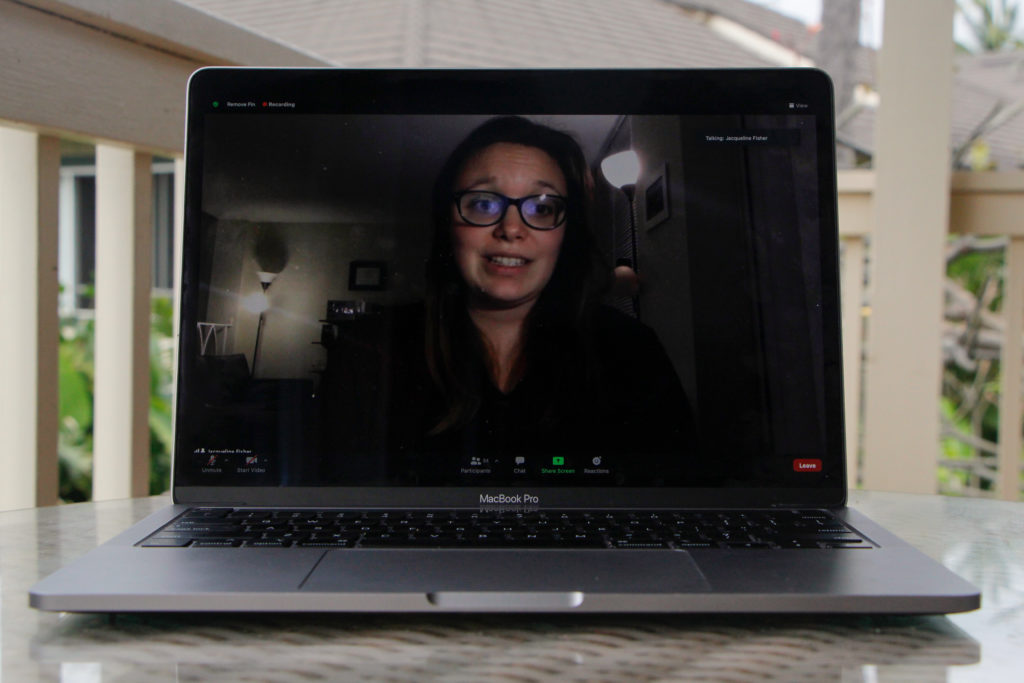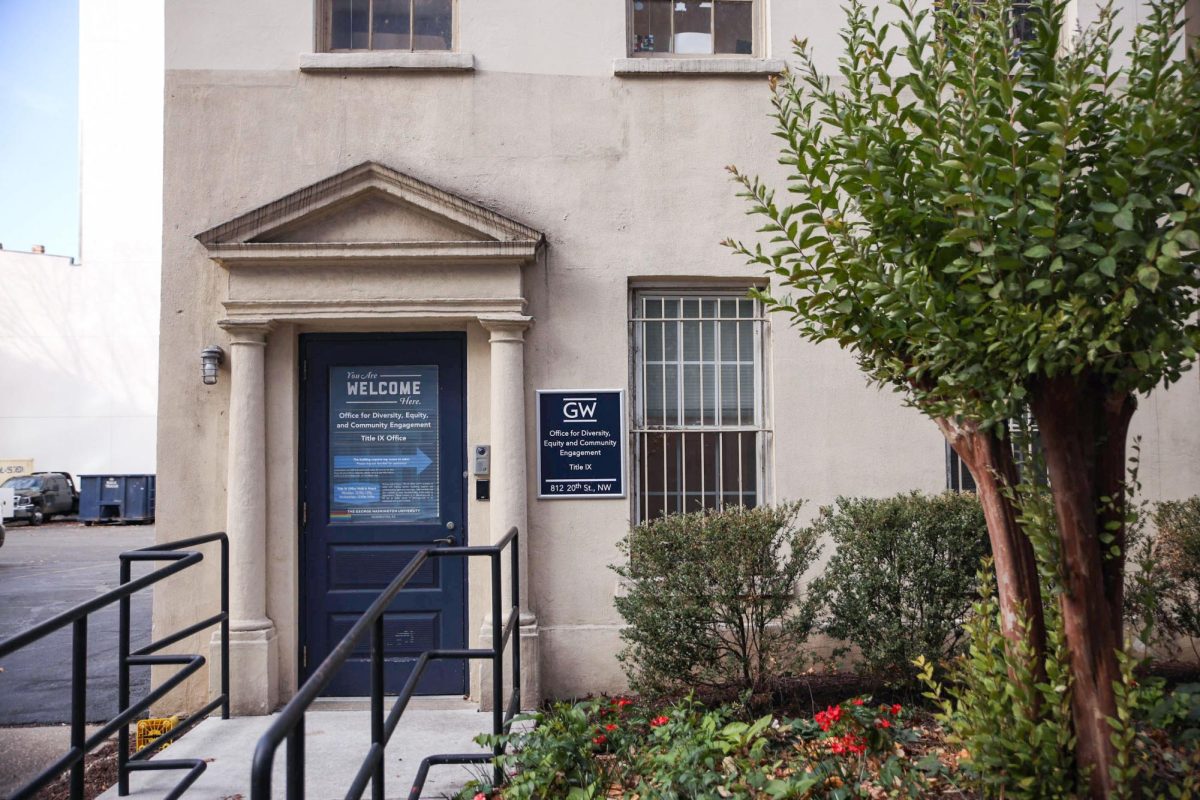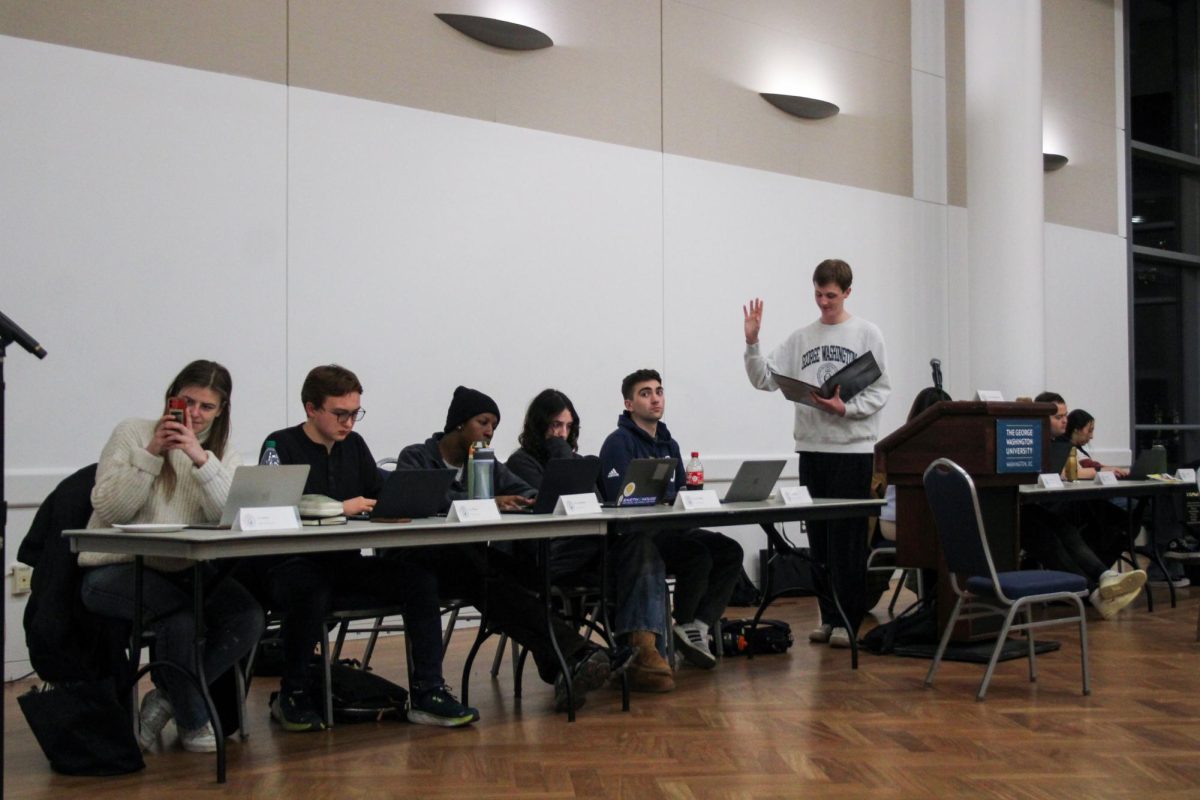Student Bar Association leaders renewed their call for SA President Howard Brookins to resign from his position at a meeting Tuesday.
SBA President Jacqueline Fisher said the SBA called for Brookins’ resignation based on his inability to govern, citing waves of resignations from his cabinet, a lack of appointments to “key” student representative seats and “alleged repeated” bylaw and constitutional violations. The SBA Senate also unanimously passed separate pieces of legislation to establish three student organizations – a group advocating against sexual and domestic abuse, a yoga club and an organization dedicated to looking at the history of the law field.
Fisher said members of the SBA are not authorized to “adjudicate or investigate” the recent sexual misconduct allegations against Brookins. She said the SBA called on Brookins to resign after deciding, in conjunction with the Student Association, that it would be “detrimental” to law students and to the SBA if the SA could not function throughout the remainder of Brookins’ term.
“Given the emotional and troubling nature of this widely reported news, we as an organization had an obligation to acknowledge that it happened and to provide resources to those who may be troubled,” Fisher said.
SA Sen. Sebastian Weinmann, Law-G, said he had been working with Thomas Falcigno, the SA’s chairperson pro tempore, on initiating impeachment proceedings against Brookins for “numerous and severe violations” of the SA constitution and bylaws before the allegations arose last week. Weinmann said the impeachment proceedings are not related to the allegations of sexual misconduct, and a potential impeachment trial would be “entirely” based on violations of the SA’s constitution and bylaws.
The SA Senate formally filed four impeachment charges against Brookins Wednesday after the charges received the requisite number of signatures from SA senators.
“To my knowledge, no one in the SA has been able to get in contact with Brookins since the allegations arose on Friday,” he said. “Executive Vice President Hill is the de facto president of the SA, and I am saying that to assure you all that the SA is operational and functional.”
The body unanimously passed a piece of legislation to create an organization called Advocates Against Sexual and Domestic Violence to educate students on how to stop the “trend” of domestic violence and assist D.C. organizations fighting for this cause. Dominique Rouge, a first-year law student, said the group will “promote service” and serve as a “channel” for GW Law students to be research assistants for Professor Joan Meier, who formed the National Family Violence Law Center at GW.
She said the organization will seek to host one event each semester that “aims to combat” domestic violence.
“The organization is focused around volunteering and fundraising but will also work to raise awareness with scholars and policymakers around the country to educate members and students on contemporary issues in this field of law,” Rouge said.
SBA senators also unanimously approved a yoga club for the law school. Sarah Libby, a first-year law student who presented the legislation, said the club will “cultivate” and preserve community members’ physical, emotional and mental balance through the “mindfulness” of yoga.
Libby, a certified yoga instructor, said she plans to lead and recruit other certified instructors to lead 40-to-60 minute classes weekly or biweekly in a virtual or socially distant outdoor environment in D.C.
“An organization like law and yoga club would really provide a great physical, mental and social benefit to the GW Law community, especially since schools been virtual,” she said. “And I think another important part of the club would just be to really connect 1Ls, 2Ls, 3Ls and anyone else in the law community during a time when we all feel a little bit distant.”
The body also unanimously approved the creation of the Legal History Society, which will research how the law field was established and has developed via resources like the law school’s legal historians, the University’s archives and the history department.
SA Sen. Cody Ingraham, Law-G, said the organization will create a space for law students to come together in a “stimulating” environment. Ingraham, who received a master’s degree in legal history at GW, said he wants this organization to help “better inform” law students’ education.
“As lawyers, we will all be tasked to tell the story of our clients, and context is the key to telling a good story and writing a good memo,” Ingraham said. “GW Legal History Society will be a great place to explore stories of social justice and underrepresented communities to help further GW Law’s campus-wide goal of promoting antiracism.”
Senators also tabled a resolution that would reform the law school’s policies on grade delivery to law students as senators are still in communication with administrators regarding the issue. SBA Sen. Nicole Karem said only some of her grades came out when they were scheduled to be released last Friday, and she received no communication from administrators regarding her missing grades.
She said she wrote a letter to law school officials asking for an explanation about why her grades were delivered inconsistently and requesting that they change their policies and release grades earlier for the following semester.
“The anger in the last couple days has been palpable with the way that grades have been handled,” Karem said. “We didn’t know until two weeks ago when we should even expect our grades, and it wasn’t the administration that informed us. It was other students and you all [SBA senators] and us figuring it out on our own.”
Makena Roberts contributed reporting








